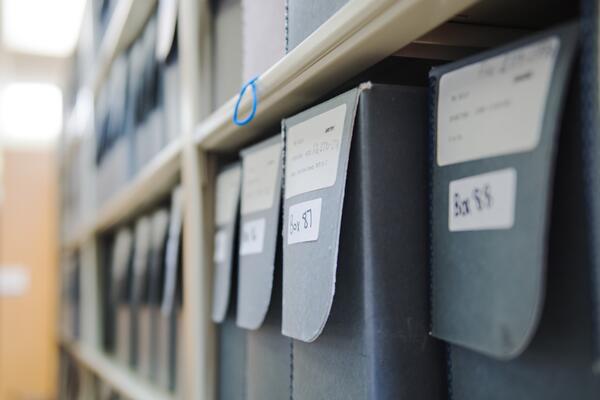
Waterloo makes campus more inclusive for Two-Spirit, Trans and Non-Binary community members
At least one washroom in almost every building on campus will soon be designated for use by all genders

At least one washroom in almost every building on campus will soon be designated for use by all genders
By University RelationsIn close cooperation with the Waterloo Undergraduate Student Association and the Glow Centre, the University of Waterloo is making campus more inclusive for Two-Spirit, Trans, Non-Binary and Gender Non-Conforming members of the campus community by increasing access to all-gender washrooms.
By early May, almost every building on campus will have an all-gender washroom available for anyone to use.
“All-gender washrooms are an important way for the University of Waterloo to make our campus safer and more inclusive,” said Dr. Christopher Taylor, Associate Vice-President of Equity, Diversity, Inclusion & Anti-Racism, whose office is leading the work. “We are very proud to have worked so closely with our students and the broader trans community here at Waterloo on this project. We thank our partners for their hard work in making this happen.”
Research has shown that gender-specific washrooms are often sites of harassment and discrimination for Two-Spirit, Trans, Non-Binary, and Gender Non-Conforming people. According to a 2018 study conducted by the Public Service Alliance of Canada, up to 70% of trans people have experienced some sort of negative reaction when accessing a public bathroom. The same study indicates that 57% of trans Ontarians have avoided using public washrooms for fear of harassment.
The conversion of some gendered washrooms on campus to all-gender washrooms is the first of three phases of work with the goal of a more inclusive experience for the Waterloo community. Phases two and three will involve assessing washrooms for minor accessibility and infrastructure improvements and where possible, exploring possibilities for ablution and the addition of other amenities to enhance washroom inclusivity for everyone. The construction of new, all-gender, single stall washrooms in strategic locations across campus will also be a focus of the later phases of this work.
"The Glow centre has pushed for decades for the university to install all gender washrooms across campus for Two-Spirit, Queer, Trans students and employees," said a spokesperson for Glow. "We are very happy that this project is reaching its first stage of completion and that Two-Spirit, Queer, and Trans individuals across campus will have a safe place to use the washroom wherever needed."
Every newly converted all-gender washroom will include a sign indicating that it is a multi-stall washroom, and noting the fixtures inside (for example toilets, urinals) to allow people to select a washroom with the fixtures they’d like to use. Each washroom will also include menstrual waste disposals, sharps disposals and privacy strips on individual stall doors where needed. All-gender washrooms include options with urinals, and options without.
To learn more about this project, please visit EDIR-O’s website.

Read more
How Doug Kavanagh’s software engineering degree laid the foundation for a thriving career in patient care

Read more
Upside Robotics secures new funding to accelerate the future of sustainable farming

Read more
Discover the meticulous work that uncovered Black stories on campus and preserved them for the future
The University of Waterloo acknowledges that much of our work takes place on the traditional territory of the Neutral, Anishinaabeg, and Haudenosaunee peoples. Our main campus is situated on the Haldimand Tract, the land granted to the Six Nations that includes six miles on each side of the Grand River. Our active work toward reconciliation takes place across our campuses through research, learning, teaching, and community building, and is co-ordinated within the Office of Indigenous Relations.